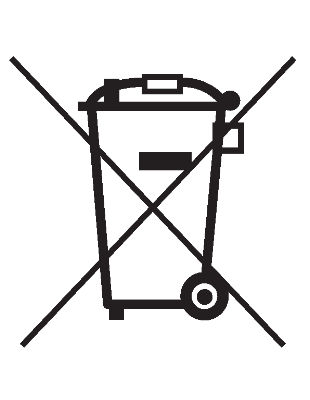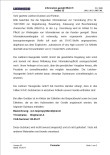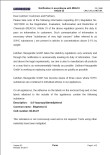The Biocidal Products Regulation (EU) No. 528/2012 regulates the bringing to market and use of biocidal products and treated articles. The following differentiation is made between ‘biocidal products’ and ‘treated articles’.
Biocidal products contain at least one actively biocidal substance and they are designed to destroy harmful organisms, such as bacteria or fungi. The regulation stipulates which products are authorised for specific applications. Non-authorised products must not be used or made available on the market unless approval has been applied for and granted. An example of a biocidal product is a wood preservative.
Treated articles are mixtures or articles that have been treated with, or that intentionally incorporate, one or more biocidal products, with the aim of protecting and preserving the articles themselves. Treated articles can only be made available on the market in the EU if they have been treated with biocidal products authorised in the EU. An example of a treated article is a fence panel painted with wood preservative for protection.
Articles are subject to mandatory labelling if
- reference is made to product properties that result from biocidal treatment and/or
- the approval for the actively biocidal substance stipulates a need for labelling
Liebherr Domestic Appliances does not currently need to provide any information concerning the use of biocides.
Batteries Take Back Scheme

As a producer of industrial batteries under the Waste Batteries and Accumulators Regulations 2009, we Liebherr GB produce Valve Regulated Lead Acid Battery. We are obliged to take back free of charge, waste industrial batteries supplied to an end user for treatment and recycling. We are required to do this in any calendar year we place new industrial batteries on the market. If any of our customers or in certain cases other end users, require us to take back Industrial batteries, they should contact Liebherr Customer Services on 03330 147 888 or by email to We will agree the necessary arrangements for the return, proper treatment and recycling of the waste industrial batteries.
Information pursuant to Article 33 of Regulation (EC) No 1907/2006 (REACH)
Article 33 stipulates that any supplier of an article must inform its client if the said article contains a ‘substance of very high concern’ (SVHC) in a concentration greater than 0.1% weight by weight. The SVHC are published in the ‘candidate list’, which is updated twice a year and can be freely accessed at: http://echa.europa.eu/web/guest/candidate-list-table
Aside from the following exceptions (see download on the right), we have, to the best of our knowledge, succeeded in manufacturing our products without the use of any critical substances.
If the appliances in question are used as intended and disposed of properly, the substances contained therein do not pose any risk to health or to the environment. There are no risks to users or food.
Our appliances, accessories, spare parts and product packaging are free from all other substances that appear in the candidate list, which are subject to the disclosure requirement.
Certified environmental management system
Under economically viable conditions, we follow a holistic environmental protection concept, which covers the entire product life cycle: the development, production, use, and eventual disposal of our appliances. The central aspects are energy and resource management, waste management, and climate protection. Based on the corporate policy, environmental management is regulated and organised by the ‘integrated management system’. Environmental management at all production sites is certified to international environmental standard ISO 14001.
ISO 14001 focuses on the continuous improvement of environmental performance. Within the scope of environmental management, guidelines are established for the most significant environmental aspects. Environmental performance is monitored and managed through the evaluation of pertinent environmental data. This approach enables us to implement rapid, effective and far-reaching measures, and to continually improve our environmental performance.
Liebherr Appliances (Liebherr-Hausgeräte GmbH) corporate policy
As a global family business, we recognise that we have a great responsibility towards society, the environment, and our customers, employees and suppliers. We believe that long-term success can only be achieved if we constantly bear this responsibility in mind as we undertake our activities, and are therefore committed to optimally balancing economic, ecological and social demands.
This policy specifies the basic principles of the Liebherr Group and outlines Liebherr Appliances’ understanding of quality, sustainability and responsibility. It applies to all production sites without exception.
Customers
Our number one priority is to be the ‘first choice’ for our customers. As a result, our aim is to respond flexibly to customer requirements and to permanently establish ourselves as a preferred partner. Our appliances are characterised by innovative and environmentally friendly technologies, elegant design, and high quality standards.
Quality
Our commitment to quality is based on a zero-defect principle, and therefore we concentrate on defect avoidance. All of our processes are gradually and continuously improved through the use of control cycles.
Employees
Our employees are the key to our shared success. We believe that our dedicated employees will guarantee the quality of our products and services into the future. Our working relationship is based on the principles of decency, mutual respect, fairness and trust. We undertake to support our employees through training and continued professional development programmes, in order to promote career security and a healthy working environment. These training and continued professional development measures provide long-term motivation for our employees and give them a sense of responsibility towards both the company and the environment.
Environment
We aim to reduce the environmental impact of our products and production sites beyond the extent that is required by regulations and legal requirements. To facilitate this, the consumption of resources is being continuously optimised and energy-related performance consistently improved. The concept of environmental protection is applied in relation to every stage of a product's lifecycle (definition, development, production, use, and eventual disposal).
Safety
We aim to minimise any stresses, adverse effects or risks that could affect our employees, neighbours or the environment in any way. This also applies to any incidents or emergencies that could result in damage. To ensure maximum safety, preventative measures have been established, and these are regularly reviewed, evaluated and, if necessary, further developed.
Suppliers
From an early stage, our suppliers and service providers are required to meet our current quality and sustainability standards. Improvements at our production sites will not be achieved by outsourcing critical production processes to our suppliers.
Dialogue
We are committed to engaging in open and objective dialogue with our employees and the public.
Integrated management system
Our integrated management system is used to fulfil these requirements and achieve the desired objectives. Its effectiveness is regularly assessed by means of auditing processes.







